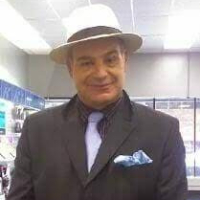 Temecula Felony Lawyers, California
Temecula Felony Lawyers, California
Sponsored Law Firm
-
 x
x

Click For More Info:
-
Orange County Criminal Attorney Law Firm
4000 MacArthur Blvd Suite 621 East Tower Newport Beach, CA 92660» view mapCriminal Defense Proudly Serving Orange County
You need an attorney with criminal defense knowledge who will vigorously protect your rights and interests.
800-956-1140
Sponsored Lawyers
1-10 of 12 matches
Criminal, Felony, Misdemeanor, DUI-DWI, White Collar Crime
Over the years I have worked on cases spanning many areas of law such as marriage dissolution issues, transferring trademarks, elder abuse, financial abuse, restraining orders, domestic violence charges, reviewing contracts, updating trusts, government-tort liability, and real estate disputes. Additionally, I have extensive experience in Criminal Law. Experience in the legal field has taught me many important lessons. I always work to keep my clients informed. I show my clients respect and try to explain everything in terms that are understandable. I routinely consult with clients regarding their most intimate and important issues. I advise my clients to choose their battles wisely because it is important to me that the best possible results are obtained in each individual situation. My office is centrally located in San Diego, and I represent clients throughout the entire county.
(more)Criminal, Felony, DUI-DWI, Misdemeanor
Defense lawyer, Ashby C. Sorensen was born and raised in Virginia just outside of our nation’s capital, Washington, D.C.. He is a graduate of University of Colorado at Boulder, where he earned a Bachelor of Arts degree in Communication. Ashby later moved further West and settled in North County San Diego, California. He then studied law at California Western School of Law in San Diego. While in law school, Ashbyworked as an agent and advisor to many of the world’s top professional snowboarders, surfers and skateboarders. Upon graduation, Ashby his passion for the courtroom and worked at the Fresno County Public Defender’s Office, where he spent over five years defending serious felony cases in trial court. In 2009, Ashby opened his own practice focusing exclusively on criminal defense. He has successfully litigated high-profile cases through trial, achieving positive results for clients facing a wide variety of charges from petty theft to homicide.
(more)Criminal, DUI-DWI, Domestic Violence & Neglect, Felony, Misdemeanor
Rated by Super Lawyers, Peter F. Iocona - Attorney at Law, and his partners, Alan Castillo and Marlo Cordero, formed "The SoCal Law Network" and selected as one of Orange County's "Best" or "Top-Rated" DUI Defense Firms. Each lawyer is Rated "Superb" or "10/10" by AVVO, the attorney-rating service and Peter F. Iocona and Alan Castillo have been selected into the list of the "Top 100 Trial Lawyers" and part of "The Nation's Top 1% of Attorneys" across the country.
(more)Criminal, Felony
Antonio J. Bestard has 40 years of experience, and is prepared to manage the complexity issues of criminal law. Mr. Bestard is Certified Legal Specialist in Criminal Law, and is fluent in Spanish. He has been an active member of the State Bar of California since 1976. He is a member of the California Attorneys for Criminal Justice.
(more)



 Michael Holmes Newport Beach, CA
Michael Holmes Newport Beach, CA AboutOrange County Criminal Attorney Law Firm
AboutOrange County Criminal Attorney Law Firm Practice AreasExpertise
Practice AreasExpertise




